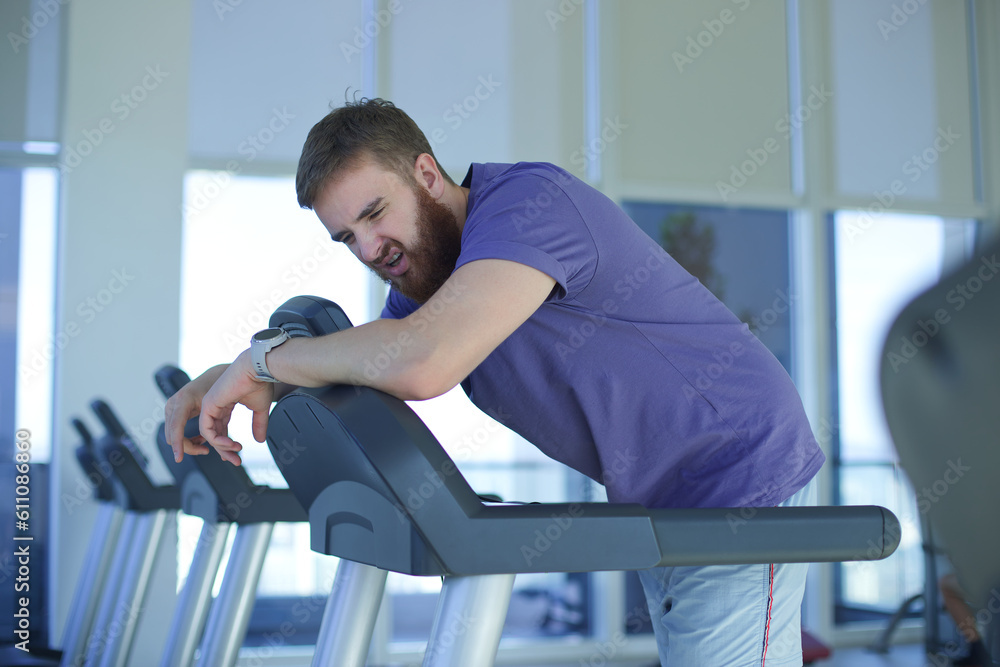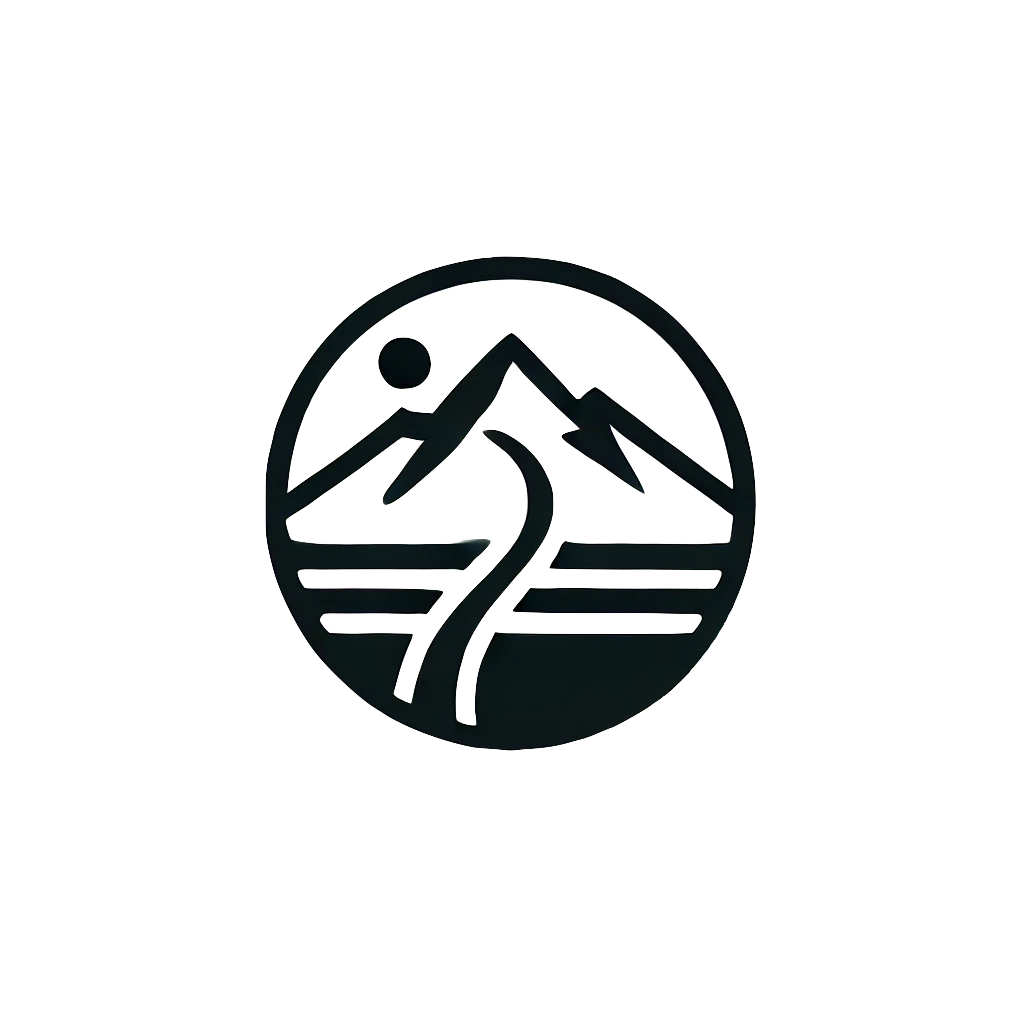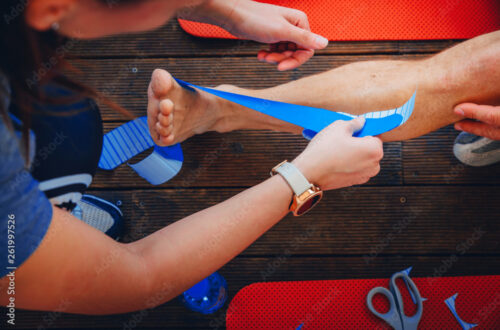
Why Training Doesn’t Work – A Brutally Honest Look at the Other 23 Hours
Ever wondered why you’re training hard but getting nowhere? Why training doesn’t work? This is the anatomy of a day gone wrong. A day when you train — but everything else collapses. Let’s call it what it is: The Worst Day. And it starts deceptively simple.
Table of Contents
I wanted to show — really show — how it happens. Because we don’t always realize how fast we spiral. But here, we will. Today, we’re rushed. We’re buried under tasks. We fall into what I call a cognitive error: the inability to pause, reflect, or even register that something’s off.
We move on autopilot. One task bleeds into the next. We stop paying attention to what the hell we’re doing — or how we’re doing it. We don’t ask, “Why now?” or “Am I ready for this?” We just go. Like a badly programmed machine.
I call this: driving on autopilot.
But let’s rewind. Let’s start from the beginning — the exact moment this “worst day” begins, maybe that’s exactly why training doesn’t work — because it’s never just about the training.
Wake-Up – The Beginning of the Time Crunch
The first alarm rings. Snooze.
Second alarm. Snooze.
Third alarm… you already know.
After maybe three, maybe four rounds of button slapping, you finally drag yourself up. But it’s not waking up, not really. It’s damage control. And it already tells us something’s broken.
There’s no natural wakefulness. No peaceful rise before the clock. Just that groggy, sour moment where your body says: “I’m not ready” — and your schedule replies: “I don’t care.”
This moment, right here, is where the time crunch begins. It’s subtle, but deadly. It starts as fifteen minutes lost to snoozing. But those fifteen minutes? They infect the entire day.
You rush. You skip steps. You override needs.
The reality is: a healthy wake-up needs training, too. It needs rhythm, repetition, and respect. But most of us live like we’re above that — like sleep is optional, like alarms are just suggestions.
And so the day — The Worst Day — begins already off-center. Slightly late. Slightly anxious. Slightly stiff. And that “slightly” will grow.
You’ll feel it. You’ll feel it in the knee that tugs, in the shoulder that pinches, in the head that feels oddly light.
Why? Because you got up too fast. Because you’re trying to win back time you already lost. Because your body wasn’t done sleeping — and you ignored that.
So you stumble into your morning routine not with purpose, but with panic. And that, right there, is your first error in a series of many.
Morning Ailments and Dehydration
Okay, so we’ve snoozed. We’re up — sort of. Not springing out of bed like in those motivational videos. More like… dragging. Shuffling. Half-conscious.
And then — bam — the first signs appear. That sharp twinge in the knee. The sudden pull in the shoulder. The weird head spin when you stand up too quickly. Little red flags, waving silently.
But you ignore them.
You’re already behind. You feel behind. You lost time snoozing, and now your brain is chasing it. You rush your movement, cut corners, do what it takes to just get going. But it’s not momentum — it’s panic in disguise.
This is where the damage begins: when you override your body’s signals in favor of the ticking clock.
And let’s not forget: you’re dehydrated.
You slept — what, six, seven hours? Maybe more. That’s a whole night without fluid intake. And unless you’ve got a habit of waking up to sip electrolytes in your sleep (spoiler: you don’t), you’re waking up mildly dehydrated by default.
Yes, even if you chugged a coffee.
Yes, even if you drank water during your workout later.
Morning dehydration is real. It builds invisibly. And the worst part? We often misinterpret it — as fatigue, as dizziness, as crankiness. And we respond not with water, but with caffeine.
That 200 ml Americano you brew first thing? It’s not hydration. It’s a trick. A chemical slap. And it can make things worse.
We think we’re waking up, but in reality, we’re just masking systemic under-recovery. The body hasn’t finished resetting, and instead of helping it… we rush it.
By now, the day is shaping up badly.
You didn’t stretch. You didn’t hydrate. You didn’t pause. Your nervous system is already on high alert — and the only thing you’ve fed it is urgency and espresso.
Training – Insufficient Recovery and Preparation
We wander into the kitchen. First coffee, obviously. That’s the script, right? That’s what every fitness YouTuber and gym bro says: “Start your day with coffee and get after it.”
So we do.
But if you’re someone trying to actually change something — really build, recover, evolve — then two things might happen here.
Let’s say you’re the morning transformation type. You’ve blocked out that early training session. Maybe it’s running, maybe the gym. Maybe you’re following a new program you bought off Instagram — or something a coach sent over.
Either way, you’re showing up tired. And sore. And dehydrated. And absolutely not ready.
But you do it anyway. Why? Because you’re trying. And because the plan says so.
So you show up — still in a fog. Still jittery from that coffee. Still aching from a week of skipped sleep. And worst of all? You skip the warm-up.
Because, of course, you’re short on time.
Because the day already started late.
Because you think you’re saving minutes.
But here’s the truth: that missed warm-up might cost you more than you know.
You jump into the workout. Maybe it’s a tempo run. Maybe a heavy squat day. You push through the reps, trying to match the program — ignoring how your body actually feels.
And just like that, you’re layering stress on top of stress. Fatigue on top of fatigue. Risk on top of risk.
Oh, and let’s not forget hydration again.
What did you bring to training? A half-empty bottle of water? Electrolytes? Nothing?
Even if it’s “just” water — it’s too late.
Post-sleep dehydration plus coffee plus sweat = a perfect recipe for diminishing returns. You’re working hard, but what’s actually happening inside is a slow, quiet sabotage.
Let’s be real: you’re not hitting max output.
You’re not even close.
And yet you’ll walk away from that session thinking you “showed up” — and wondering later why you still feel like crap.
The Commute – Postural Stress and Fatigue
Alright, training is done — sort of. You didn’t warm up, you didn’t hydrate properly, but hey, you did it. So now you move on with your day. Fast.
You shower quickly, maybe chug some kind of shake (we’ll come back to that later), throw on clothes, and jump into the car. Or maybe onto a tram. Or maybe you’re packed into a bus like a sardine.
Either way — you’re sitting again. And here we go.
This is where it gets messy. Because now, after that rushed and under-fueled workout, you’re folded into another seated position. This time in jeans, slumped, stiff, and still not fully cooled down.
Your body is still buzzing from the cortisol spike. Muscles haven’t relaxed. And your biomechanics? They’re nowhere near stable.
And what do you do? You hunch. You lean. You twist. You drive with one hand. Maybe you scroll at red lights. Maybe you’re tense because you’re late. Your jaw clenches. Your hip flexors tighten.
If you just did squats at the gym, and your form was even slightly off — this is where the pain locks in. This is where it sets.
You start feeling it. That knee again. That lower back. That nagging pull in the glute. It’s subtle. But it’s there. And you’re about to sit like this for 30 to 60 minutes.
And then you’ll do it again on the way home.
And no, standing on a train isn’t much better if you’re swaying, bracing, and clenching with poor alignment. It’s just a different version of the same trap.
And so the injuries — the ones you think are from training — aren’t from training alone. They’re from what comes after. From what you repeat, passively, in the rest of your day.
But we rarely connect the dots.
We just say: “Damn, my knee’s acting up again.”
Or: “Why does my back hurt after every leg day?”
Here’s why: your training doesn’t exist in a vacuum.
It happens in the context of your life — and that life is sitting down, hunched over, locked in stress, for hours on end.
Work – Poor Nutrition and Chronic Sitting
You finally get to work. You’re seated again. Of course. First thing? Another coffee. Maybe the third of the day already — and it’s not even 9:00 AM.
Somewhere between the second and third sip, your body whispers, “I’m hungry.” But you ignore it. You’re stressed. Buzzing. Brain in ten places at once. The emails are pouring in. Meetings are looming.
So what do you grab?
A bar. A protein bar, naturally — because that sounds like a fitness choice. Except it’s not. It’s a brick of chemicals, a Frankenstein of artificial sweeteners and gut-disrupting fibers, wrapped in foil and lies.
But hey, it has macros, right?
Meanwhile, your body is screaming for real nutrients. But all it gets is stimulants and sugar alcohols. No real food. No hydration. No break.
You shift in your chair. Your glutes ache. Your legs twitch. You’re still dehydrated, still stiff, still reeling from the morning’s under-recovery.
And you’re still sitting.
And it doesn’t get better from here. You go from one meeting to another. Click-click-click. Keyboard hammering. Brows furrowed. Posture collapsing slowly like a folding chair under pressure.
And the coffee keeps coming.
Fourth. Fifth. Maybe even sixth.
Your heart races, but you’re still yawning. Your head hurts, but you drink more. You think you’re fixing the fatigue, but you’re feeding the crash that’s coming.
And then, out of nowhere, a pang of confusion:
“Why do I feel like I’ve been hit by a truck?”
You trained. You ate “something.” You’re working hard.
And yet — you feel worse.
Because you’ve given your body no chance to regulate. No time to digest. No rhythm. Just chaos.
And it’s only 10:30 AM.
Lunch – Choices Under the Pressure of Hunger
And so the day grinds on. You’re depleted. Your brain is foggy. Your body is screaming — and not in the “feel the burn” kind of way.
It’s noon. You’ve burned through caffeine, chewed up all your focus, and pushed through five meetings. But the hunger? It doesn’t ask permission. It demands.
Your brain turns primal:
“Give me carbohydrates or I will shut you down completely.”
So you obey.
You go to the nearest canteen, bar, or wherever you can get food fast. And what’s there?
Fries. Always fries.
Potatoes. Breaded meat. Something heavy. Something fried. Something that makes your cortisol-flooded brain go, “Yes, this will save me.”
But it won’t.
You eat fast. You barely taste it. Maybe there’s a coleslaw, maybe not. If there is, it’s drowned in mayo-based dressing pretending to be salad. You don’t even care at this point. You just need that sweet, greasy relief.
And here’s the thing: you didn’t choose this lunch. It chose you.
Because you were behind all morning. Because you didn’t prep. Because you thought you’d “just grab something.”
And now, your entire hormonal system is on fire.
Insulin spikes. You feel heavy. Bloated. Sluggish.
But you’re still not done.
You’ve just traded one problem (hunger) for another (crash).
And worse? You blame yourself.
You say, “I should’ve had willpower.”
No, friend — you should’ve had a plan.
Because no one wins a fight against hunger at noon when the body’s in survival mode.
You don’t win those battles with discipline.
You win them at 7 PM the night before — when you prep real food for the next day.
But that didn’t happen, did it?
So here we are: full belly, empty tank. And still hours left in the day.
Afternoon Slump – The Crash
It’s 3:00 PM. And suddenly, you hit the wall.
That greasy lunch? It’s coming back with vengeance.
The fries? The breaded meat? They did their job — temporarily. But now you’re stuck in the aftermath.
Insulin spike. Massive crash.
You’re not just sleepy. You’re catastrophically sleepy.
Like, “head-on-desk, staring-into-space, should-I-quit-my-job” kind of sleepy.
Your brain isn’t working. Your limbs feel heavy. You can’t focus on anything except how badly you want to lie down.
And you still have two, three, maybe four hours of work left.
Caffeine is no longer saving you. It’s leaving your system.
And it’s taking your energy with it.
What’s left behind?
Fatigue. Frustration. Irritability. A vague sense of doom.
And again — you reach for something. A snack, another coffee, maybe just water, but even that feels too little, too late.
The worst part? You blame yourself. Again.
You think you’re lazy. Unmotivated. Weak.
But you’re not. You’re just in a system — a daily structure — that’s rigged against you.
Because after poor sleep, under-recovery, caffeine dependence, sugar crash, stress buildup, and no movement…
you’re exactly where your choices were leading you.
And what’s your reward for surviving this crash?
Another commute.
Back to the car. Back to the seat. Back to traffic, tension, and tight hip flexors.
It’s this kind of day — a slow descent into depletion — that shows why training doesn’t work the way we expect it to.
Evening – Escapism through Vices and Inactivity
You get home. Finally.
But the relief you expected? It doesn’t come.
Because you’re not rested — you’re fried.
Fried from caffeine, from the crash, from traffic, from trying to hold it all together.
And so begins the evening spiral.
You put on some music. Maybe an audiobook. Maybe a podcast. Just something to drown out the noise in your own head. Something to distract from the fact that you feel… off.
You’re snappy.
You’re irritable.
You want silence — but not the kind that forces reflection.
So you open the fridge. Or the cupboard.
You reach for something — anything — that makes you feel better, if only for a moment.
Maybe it’s chips.
Maybe it’s cookies.
Maybe it’s that “just one” beer that becomes three.
You don’t even realize what you’re doing.
You’re trying to eat and drink your way out of the day.
It’s not about hunger. It’s about relief. About reward. About reclaiming some tiny piece of joy before sleep.
And sleep? You’re not ready for it.
You turn on the TV — not to watch, but to blur the world.
And while the show plays in the background, you scroll. Phone in hand, neck craned, eyes half-shut.
You say to yourself:
“This is my time. My space. My right.”
And maybe it is. But it’s not helping.
Because that beer? That series? That dopamine drip from scrolling?
They’re not decompressing you.
They’re numbing you.
And the people around you?
They feel it.
Your kid wants your attention, but you’re mentally elsewhere. Your partner says something, and you snap.
“I’ve had a long day.”
And you have.
But so has everyone else.
Now, instead of recovering from the day — you’re just surviving it.
Instead of reconnecting with yourself — you’re zoning out.
Instead of healing — you’re sinking.
And you start to wonder, somewhere between episodes and beers:
“How the hell did it all slip again?”
The False Recovery – Poor Sleep Hygiene
It’s late now.
You’re tired — but not the good kind.
Not post-workout tired. Not “earned-it” tired.
You’re wired-tired.
Your mind is jittery, your body is sluggish, your soul is somewhere between resentment and surrender.
You tell yourself:
“Just one more episode. One more beer. One more scroll.”
Because you want to feel something that isn’t stress, noise, or expectation.
Because you want a moment that belongs to you.
So you stretch the evening.
Not out of joy — but out of rebellion.
Because it can’t be just work. Just training. Just discipline. Just demands.
So you binge-watch. You scroll. You drink. You sit in silence pretending it’s peace.
And then comes sleep.
But not real sleep — defensive sleep.
Shallow. Fragmented. Chemical.
The caffeine still lingers. The alcohol clouds your REM. Your nervous system, taxed from the day, has no idea how to downshift.
You lie down — but you don’t drift.
You drop.
And sometime around 2 AM, your body reminds you:
You drank too much.
You’re dehydrated.
You need to pee.
So you get up.
You shuffle to the bathroom.
You crawl back under the blanket.
But now it’s too warm. Or too cold. Or your heart is beating weird. Or you’re thinking about emails. Or you forgot to prep for tomorrow. Or maybe you just feel… off.
And when morning comes?
You don’t feel rested.
You feel like you survived the night — nothing more.
Because real recovery didn’t happen.
Because deep sleep never came.
Because you gave your body nothing it needed.
Not time.
Not calm.
Not silence.
Not stillness.
And this, you think, is just how it is now.
But it’s not.
It’s just what the cycle wants you to believe.
Why Training Doesn’t Work – The 3 Pillars You’re Probably Missing
So here it is.
If you’ve ever wondered why training doesn’t work, even when you’re consistent, the answer might be simpler — and harsher — than you think.
You trained. You put in the hour. You followed the plan.
And yet — nothing’s changing.
No progress. No energy. No clarity. No strength. Just more soreness, more exhaustion, more confusion.
What’s going wrong?
The truth is simple — brutal, but simple, training doesn’t work is rarely about the workout itself. It’s about the 23 hours that undo it.
You can’t outrun the other 23 hours.
That one hour of training?
It’s not enough.
Not when everything else is falling apart.
You’re missing the pillars.
The things that actually make training work.
1. Sleep — Not Just Duration, but Depth
You don’t just need “eight hours.”
You need deep, regulated, hormonal, nervous-system-resetting sleep.
The kind you sabotage every night with light, noise, alcohol, anxiety, and scrolling.
And without it? You’re burning fuel with a broken engine.
2. Nutrition — Not Just Macros, but Timing and Intention
It’s not just about eating “enough protein.”
It’s about eating when your body needs it.
Fueling before you crash. Recovering before the slump.
And knowing the difference between hunger and escape.
3. Movement Quality — Not Just Volume, but Awareness
It’s not how much you train — it’s how you move.
Your patterns. Your posture. Your warm-ups, cooldowns, recovery.
And most of all, the way your training integrates into the rest of your life.
Because one perfect session doesn’t matter if you spend the next 23 hours sitting, slouching, spiraling, and self-medicating.
So, no — it’s not your training plan that’s broken.
It’s the day around it.
It’s the missed signals. The default choices. The invisible habits.
That’s what’s killing your progress.
That’s why you still feel stuck.
That’s why training doesn’t work.




